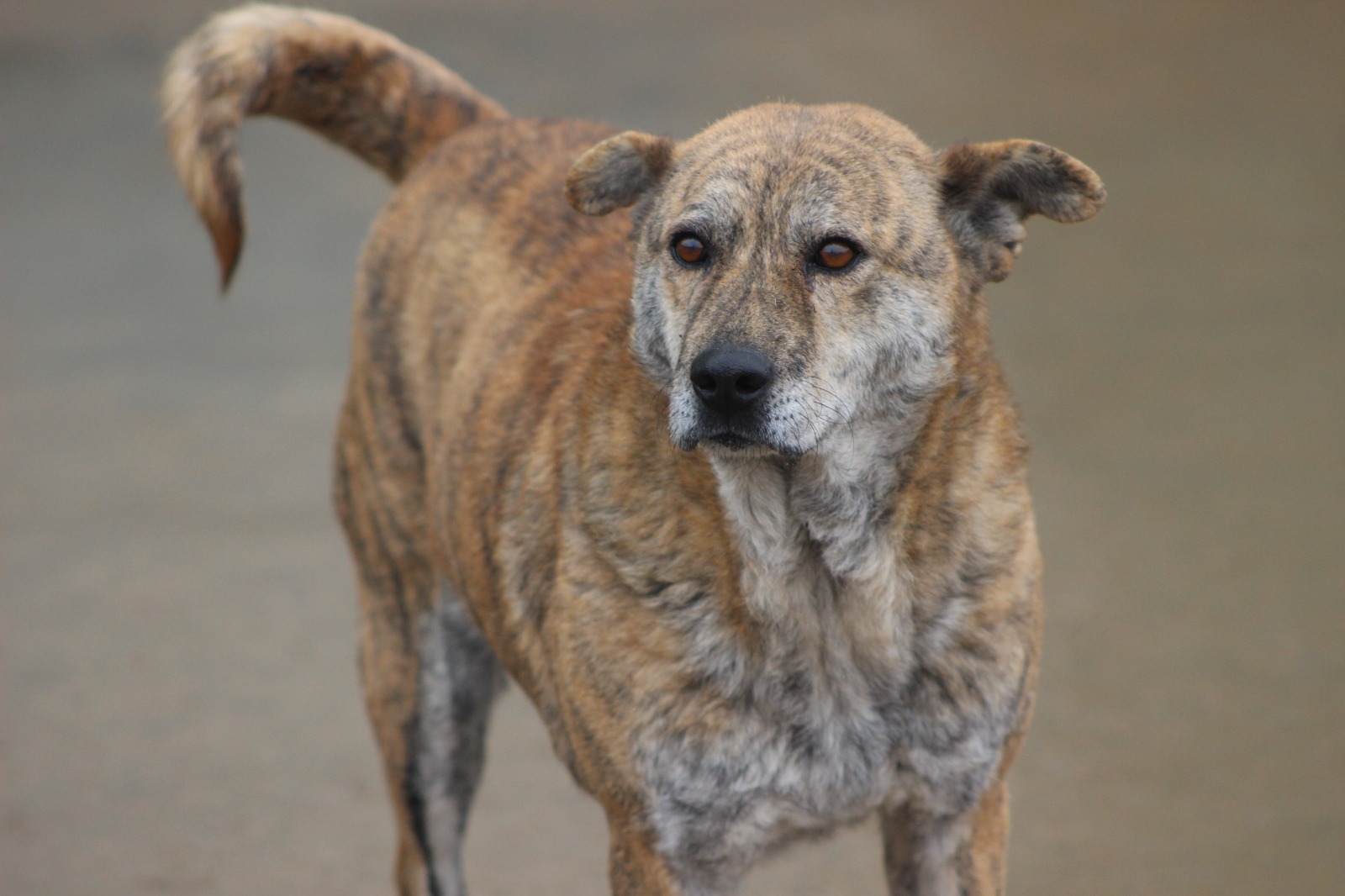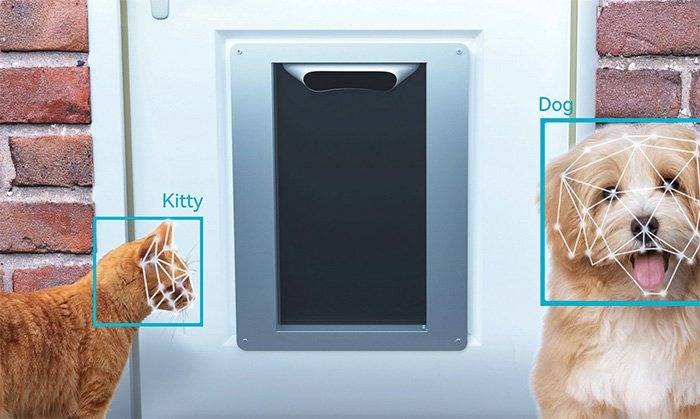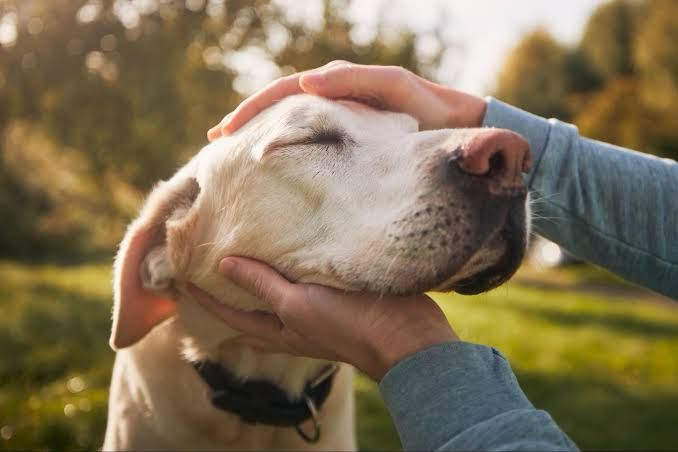
What Breed Is Right for You? A Personality-Based Guide.
Finding the perfect dog isn't just about looks—it's about choosing a breed that fits your personality, lifestyle, and emotional needs. Whether you're an active explorer, a calm homebody, or a nurturing caregiver, this guide helps match you with the ideal canine companion based on who you truly are, ensuring a rewarding and lasting human-dog relationship.
🐶 Pet Star
44 min read · 30, Jul 2025

What Breed Is Right for You? A Personality-Based Guide
Choosing a dog breed is not just a matter of appearance or size—it’s about compatibility. Just like people, dog breeds have personalities, energy levels, social needs, and quirks that make them more or less suited to certain types of humans. If you choose a breed that matches your lifestyle, personality, and living conditions, you are more likely to enjoy a fulfilling, long-lasting bond with your furry companion.
This article explores the intersection of human personality types and dog breeds, helping you determine which breed might be perfect for your temperament and daily routine.
Understanding Your Personality Type
To simplify the process, we’ll consider five general personality archetypes and recommend ideal breeds for each:
- The Active Adventurer
- The Calm Homebody
- The Social Butterfly
- The Independent Thinker
- The Nurturing Guardian
1. The Active Adventurer
Traits: Energetic, outdoorsy, athletic, loves hiking or running, thrives on routine physical activity.
Lifestyle: Prefers outdoor excursions, daily exercise, challenges, and interactive experiences.
Ideal Dog Traits: High energy, stamina, agility, and a love for adventure.
Recommended Breeds:
- Border Collie: Incredibly intelligent, quick learners, and love to be mentally and physically stimulated.
- Australian Shepherd: Agile, smart, and enthusiastic about learning and playing.
- Labrador Retriever: Athletic, friendly, and always up for a swim or run.
- Vizsla: A lesser-known breed, but perfect for running partners with high energy.
Not Ideal: Bulldogs, Basset Hounds, or toy breeds that prefer lounging over running.
2. The Calm Homebody
Traits: Introverted, enjoys peace and quiet, prefers reading, working from home, or relaxed indoor activities.
Lifestyle: Values low stimulation, predictable routines, and minimal fuss.
Ideal Dog Traits: Laid-back, affectionate, content with moderate exercise and lots of indoor time.
Recommended Breeds:
- Cavalier King Charles Spaniel: Gentle, loving, and happy with couch cuddles.
- Basset Hound: Low-energy and loyal, loves lounging near their human.
- Shih Tzu: Enjoys indoor play, low-exercise requirements, ideal for apartments.
- Greyhound (surprisingly!): Despite racing fame, they are couch potatoes and love relaxing.
Not Ideal: Jack Russell Terriers, Huskies, or Collies—these breeds demand high energy and stimulation.
3. The Social Butterfly
Traits: Extroverted, outgoing, enjoys parties, social gatherings, and frequent visitors.
Lifestyle: Frequently hosts, enjoys time in parks, cafés, dog-friendly events, and engaging with others.
Ideal Dog Traits: Friendly, playful, gets along with people and other pets.
Recommended Breeds:
- Golden Retriever: Universally loved, affectionate, and great with kids and strangers.
- Poodle (Standard or Mini): Intelligent, sociable, and easily trained.
- Beagle: Playful, curious, and loves being around people.
- Cockapoo: A mix of Cocker Spaniel and Poodle—affectionate and lively.
Not Ideal: Chow Chows or Basenjis—more aloof and independent.
4. The Independent Thinker
Traits: Analytical, introverted or ambivert, values personal space, likes hobbies such as reading, writing, or gaming.
Lifestyle: May have long work hours or intense focus hobbies, enjoys quiet companionship over constant affection.
Ideal Dog Traits: Independent, intelligent, low-maintenance emotionally.
Recommended Breeds:
- Shiba Inu: Independent, cat-like, and clean, yet loyal once bonded.
- Basenji: Quiet, clever, and quirky—ideal for minimal barking.
- Akita: Reserved but fiercely loyal, needs proper socialization.
- Scottish Terrier: Self-reliant and intelligent, but still playful.
Not Ideal: Clingy breeds like Labradors or Velcro-like lap dogs.
5. The Nurturing Guardian
Traits: Empathetic, caring, patient, possibly with children or elderly at home, enjoys caregiving and routine.
Lifestyle: Prefers routine, values companionship, and enjoys nurturing roles.
Ideal Dog Traits: Loyal, intuitive, affectionate, often protective, great with families.
Recommended Breeds:
- Newfoundland: Gentle giants, affectionate and patient, excellent with kids.
- Boxer: Energetic and loving, great with children and always alert.
- Bernese Mountain Dog: Calm, loving, protective, and gentle.
- Golden Retriever: Again perfect—great with all family members and very intuitive.
Not Ideal: Breeds with aloof or one-person tendencies like Chows or Afghan Hounds.
Other Factors to Consider
1. Living Space
- Small apartment? Consider small or quiet breeds like French Bulldogs or Pugs.
- Large backyard? Larger, high-energy breeds like Huskies or German Shepherds.
2. Time Commitment
- Work long hours? Consider independent breeds.
- Always home? Affectionate breeds will thrive.
3. Allergies
- Go for hypoallergenic breeds like Poodles, Portuguese Water Dogs, or Schnauzers.
4. Experience Level
- First-time owner? Go with easygoing breeds like Golden Retrievers or Bichon Frises.
- Experienced? You might handle more challenging breeds like Belgian Malinois.
Mixed Breeds and Rescues
Don’t discount mixed breeds or rescues! Many have balanced traits and are deeply grateful, loyal, and adaptable. With a proper personality assessment from the shelter staff, you can often find a perfect fit without opting for a purebred.
Choosing the right dog breed isn't just about how a dog looks or how big it grows—it's about how well that breed aligns with your personality, lifestyle, and emotional needs. Much like human relationships, the bond you form with a dog is deeply influenced by compatibility. A mismatch in energy levels, social tendencies, or independence can lead to frustration for both pet and owner. People, like dogs, come in various personality types, and when these types align well, a fulfilling and harmonious companionship follows. For example, someone who thrives on outdoor activities, early morning jogs, hikes, and spontaneous adventures would naturally get along with a dog that mirrors that energy and enthusiasm. Breeds like Border Collies, Australian Shepherds, and Labradors are known for their agility, intelligence, and need for physical stimulation—making them excellent partners for active individuals. On the opposite end of the spectrum, a quiet, introverted homebody who values tranquility and minimal excitement will likely prefer a breed like the Cavalier King Charles Spaniel, Basset Hound, or Shih Tzu—dogs known for their calm nature and contentment with short walks and long cuddle sessions. Then there's the outgoing, social butterfly—the kind of person who loves hosting, meeting new people, and thrives in group settings. Breeds that complement this lifestyle, such as the Golden Retriever, Beagle, or Cockapoo, are generally friendly, people-loving, and comfortable in dynamic, interactive environments. These dogs often enjoy trips to dog parks, meeting new pets and people, and being part of a vibrant household. For the more cerebral and independent thinker—the type of person who enjoys alone time, hobbies like reading, writing, or gaming—low-maintenance, emotionally independent breeds are often a better fit. Breeds like the Shiba Inu, Basenji, or Scottish Terrier are intelligent and self-sufficient but still form deep bonds when respected for their space and autonomy. There’s also the nurturing guardian—the person who may have children, elderly family members, or simply a deeply empathetic personality. They seek companionship and often look for a dog that thrives in stable, affectionate environments and is great with family. For them, breeds like the Newfoundland, Bernese Mountain Dog, Boxer, or the ever-popular Golden Retriever are ideal—they’re patient, loving, protective, and deeply intuitive to human emotions. However, choosing the right breed is not solely based on personality—it also involves practical considerations like living space, daily schedule, financial capacity, and prior dog experience. An apartment-dweller may need a quiet, less active breed regardless of personality, such as a French Bulldog or Pug, while someone with a backyard might better accommodate a Husky or German Shepherd. People with busy jobs or long commutes might prefer breeds that are emotionally independent and less prone to separation anxiety, such as the Chow Chow or Akita. Allergy sufferers must look into hypoallergenic breeds like Poodles or Schnauzers, while first-time dog owners are advised to stick with breeds that are friendly, trainable, and forgiving of rookie mistakes—like the Labrador, Bichon Frise, or Pug. It’s also crucial not to overlook mixed breeds and rescue dogs, which often combine the best traits of multiple breeds and adapt surprisingly well to a wide variety of environments. Many shelters and adoption centers evaluate dog personalities and behavior traits to help match them with the right families or individuals, making them a great resource for personality-based matching. Beyond temperament and care requirements, emotional compatibility also plays a huge role. A dog’s loyalty, protectiveness, and affection levels can profoundly affect an owner's mental health and daily emotional state, which is why getting the match right is so important. The right breed can bring comfort, joy, and stability, while the wrong one may cause stress, behavioral issues, and even heartbreak. Dogs are long-term companions, often living 10–15 years or more, so taking the time to match their traits to your personality is a crucial step in responsible pet ownership. Ultimately, choosing a breed that mirrors your emotional rhythm—not just your lifestyle—creates a deeper, more meaningful relationship. A thoughtful pairing results in fewer behavioral problems, better bonding, and a happier life for both the pet and the owner. Think of the process like dating—you wouldn’t marry someone just because they look good in photos; you choose someone who complements your energy, respects your boundaries, and loves you back in the way you need. In the same way, your future dog deserves a home where their temperament is appreciated, their needs are met, and their love is returned in full. By reflecting on who you are, what kind of life you live, and what emotional companionship you seek, you can find not just a dog—but the right dog, one that walks beside you not just on leashes, but through life itself.
Choosing the right dog breed is far more than a matter of personal preference for size, looks, or popularity—it’s a deeply personal decision that should align with your personality, lifestyle, and emotional expectations, as a mismatched pairing can lead to frustration for both human and dog alike; understanding that each breed has its own set of tendencies, behaviors, energy levels, and social needs is crucial when selecting a canine companion, and therefore, exploring personality-based compatibility can help avoid common mistakes and pave the way for a mutually fulfilling relationship. For the highly energetic and adventurous individual who thrives on physical activity, outdoor challenges, and constant movement, breeds like the Border Collie, Australian Shepherd, Labrador Retriever, and Vizsla are ideal companions, as they are not only athletic and agile but also mentally alert and eager to participate in hikes, runs, and even agility training; these dogs require high engagement and plenty of physical stimulation, and when partnered with someone who enjoys adventure and routine activity, the bond formed can be exceptionally strong. On the other hand, for those who identify more as calm, introverted homebodies—people who enjoy quiet evenings, soft routines, and low-energy environments—more relaxed and gentle breeds such as the Cavalier King Charles Spaniel, Basset Hound, Shih Tzu, and surprisingly, the Greyhound (who, despite their racing backgrounds, are known as “45-mph couch potatoes”) offer affection without overwhelming demands, perfectly complementing those who prefer staying indoors, reading books, or working from home. If you’re a social butterfly who enjoys parties, gatherings, dog-friendly outings, and loves being surrounded by people and activity, breeds that are outgoing, friendly, and enjoy attention—like the Golden Retriever, Beagle, Cockapoo, or Poodle—are naturally drawn to high social settings and enjoy being the center of attention; they tend to interact well not just with people but with other dogs, making them ideal companions for extroverted personalities and families with children. Conversely, more cerebral, independent thinkers—individuals who value solitude, intellectual pursuits, and autonomy—may feel overwhelmed by highly dependent or clingy breeds, and would find a more harmonious match in dogs like the Shiba Inu, Basenji, Scottish Terrier, or Akita, which are more self-sufficient, reserved, and thoughtful; while these breeds may not be constantly affectionate, they develop deep, loyal bonds when given space and mutual respect. Then, for those with nurturing instincts—people who are naturally empathetic, perhaps parents, caretakers, teachers, or nurses—who enjoy caregiving and thrive in emotionally warm environments, affectionate and family-friendly breeds like the Newfoundland, Bernese Mountain Dog, Boxer, and once again, the versatile Golden Retriever offer unparalleled companionship, emotional sensitivity, and protective instincts, making them gentle and patient with children, the elderly, or anyone needing emotional comfort. Beyond personality compatibility, practical factors must be considered as well: for instance, if you live in a small apartment, breeds like the French Bulldog, Boston Terrier, or Chihuahua may suit your space limitations better than larger or high-energy dogs like Huskies or German Shepherds, which require room to roam and regular exercise. Additionally, individuals with long work hours or frequent travel should consider more independent breeds that can tolerate alone time, such as the Chow Chow or Shar Pei, while retirees or stay-at-home individuals may enjoy the constant companionship of a Velcro-dog like a Maltese or Cocker Spaniel. Allergy concerns should also be factored in, as hypoallergenic breeds like the Poodle, Bichon Frise, and Portuguese Water Dog produce less dander and may be safer choices for sensitive individuals. Similarly, first-time dog owners should lean towards breeds that are easy to train, forgiving of beginner mistakes, and generally adaptable—such as the Labrador Retriever, Golden Retriever, or Pug—while experienced owners may be better equipped to manage more complex, high-maintenance dogs like the Belgian Malinois or Doberman Pinscher, which require firm leadership and consistent training. It is also worth highlighting the incredible value of mixed breeds and rescue dogs, many of which possess balanced temperaments and diverse traits that may better reflect your unique lifestyle than a purebred ever could; with proper assessment from shelter staff or behavior specialists, you can find a mixed breed that complements your energy, activity level, and temperament just as well as (or even better than) a pedigree dog. Moreover, considering that dogs typically live between 10–15 years or longer, emotional compatibility should be a top priority—if you are the kind of person who needs daily reassurance and companionship, choosing a breed known for its loyalty and expressiveness can provide emotional stability and reduce feelings of loneliness or anxiety, whereas if you value independence and find emotional clinginess draining, selecting a breed that enjoys companionship without constant attention is essential for mutual well-being. Many people make the mistake of choosing dogs based solely on appearance or trending breeds—such as Dalmatians after movies or Pomeranians because of social media—but these choices, when made without regard to personality compatibility, often lead to behavior problems, stress, and eventual rehoming, which is painful for both human and pet. Just like choosing a life partner, selecting the right dog should involve honest self-reflection about your needs, boundaries, routines, and emotional bandwidth; the more you know about yourself, the more likely you’ll find a dog that doesn’t just live in your home, but shares in your life. Ultimately, this process isn't about finding the "best" breed—it’s about finding the right breed for you, one whose temperament and energy match your own so seamlessly that the relationship becomes second nature, where communication flows even without words, and where both of you feel deeply seen, understood, and loved.
Conclusion
Choosing a dog breed based on your personality isn't just about compatibility—it’s about building a meaningful, sustainable relationship. Whether you're a quiet homebody or an outgoing adventurer, there’s a dog breed out there that mirrors your rhythm.
While physical space, time availability, and experience matter, your temperament is one of the most important criteria. Dogs are lifelong companions and understanding their breed-specific traits ensures a match that results in a happy pet and an even happier human.
Q&A Section
Q1 :- How do I know what breed matches my personality?
Ans:- Start by identifying your lifestyle and key personality traits—are you active, introverted, social, nurturing, or independent? Then, choose breeds known for similar energy levels, sociability, and independence.
Q2 :- Are mixed breeds suitable for personality-based matching?
Ans:- Absolutely! Mixed breeds often have balanced temperaments. Shelter staff can help assess individual dog personalities to find one that suits your lifestyle.
Q3 :- What breed is good for families with children?
Ans:- Golden Retrievers, Newfoundlands, Boxers, and Labradors are excellent family dogs—gentle, patient, and protective with kids.
Q4 :- Which breed is best for introverts or people living alone?
Ans:- Shiba Inu, Basenji, Greyhound, or Cavalier King Charles Spaniel are great companions who don't require constant attention.
Q5 :- Can I own a high-energy breed in a small apartment?
Ans:- It’s possible with daily walks and playtime. Breeds like Miniature Poodles or Beagles adapt well with stimulation. Avoid Huskies or Border Collies if you can’t offer regular exercise.
Similar Articles
Find more relatable content in similar Articles

Smart Homes for Pets: Automated Feeders, Doors, and Mo..
As smart home technology advan.. Read More

How Climate Change Affects Wild and Domestic Animals...
Climate change is dramatically.. Read More

Senior Pet Adoption: Why Older Animals Make the Best C..
Adopting a senior pet is a pro.. Read More

Sustainable Pet Products: What to Look for in 2025...
As sustainability becomes a ce.. Read More
Explore Other Categories
© 2024 Copyrights by rPets. All Rights Reserved.